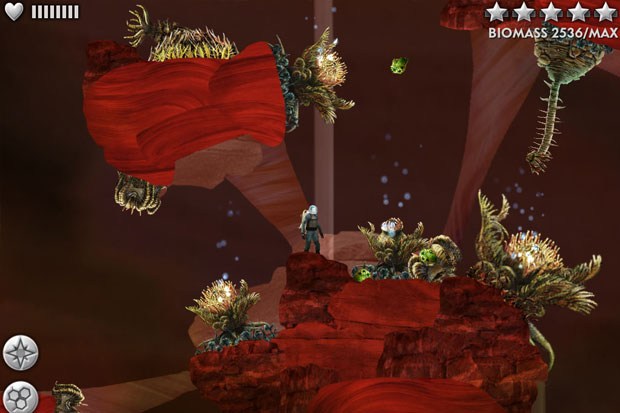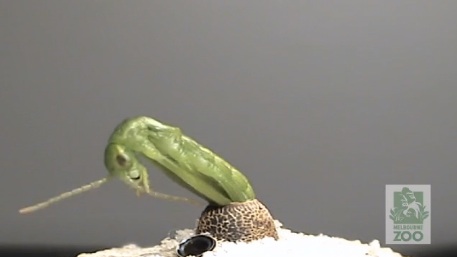
New iOS app “Waking Mars” is a game about gardening, botany, and ecology, which sounds boring — especially if you’re about my age, and your primary school teachers tried to get you to learn about ecosystems via some clunky games with Oregon Trail-level graphics where you controlled the number of fish or ducks or some shit and then watched the population spiral out of control. That? That was boring. THIS IS RAD.
(Full disclosure: The designer/company founder is a friend of mine, which probably obligated me to buy the thing, but did not obligate me to stay up until after 1 a.m. playing it.)
[vimeo http://vimeo.com/37611505]The concept: You’re an astronaut exploring caves under the surface of Mars. The caves are full of “zoa,” which are sort of plants and sort of creatures and sort of a really useful Scrabble word, and each type has particular defense systems, reproductive habits, and ways of interacting with other life forms. Some of them hurt you, some of them heal you — but more importantly, some of them kill and eat other zoa, and some make other zoa grow and flourish. So your underground gardening isn’t just increasing the amount of life on Mars; it’s also setting up self-sustaining, symbiotic ecological systems.
[Y]ou need to observe each creature and figure out its diet, its relationship with other organisms, its reaction to different chemicals and the way it reproduces. Some plants spit seeds, others jettison great bubbles of water, and some toss explosive fruits. There are animals that asexually reproduce, and there are carnivorous plants that munch on the game’s aliens.
Getting through each room requires you to put these elements together and solve an organic puzzle where all the different parts are moving, interacting and — half the time — eating each other. By planting seeds and herding animals you can experiment with different pairings, find symbiotic relationships and exploit food chains. It’s about carefully setting up self-sufficient ecoystems that steadily increase in biomass, even while you’re not around.
Human influence on Mars is kind of a mixed bag, just like it is on Earth. You have the chance to restore ailing ecosystems and establish robust new ones, but you can also end up with gardens that cannibalize themselves. I really can’t think of a more engaging way to bring home the idea of ecological balance.
But I better go play it just a leeeeetle more to make sure I’m right. See you in three hours.




